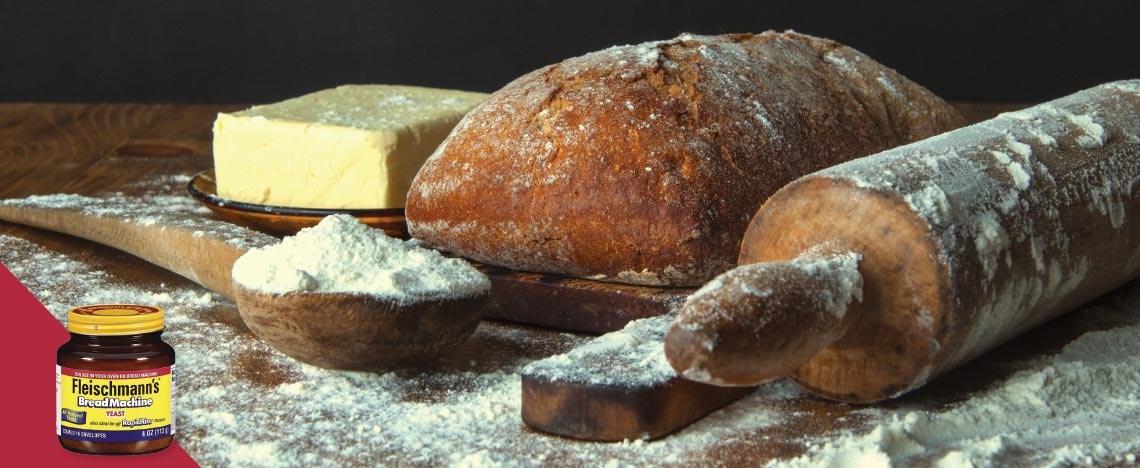Traditions surrounding baking directly link us to our past. Whether it’s a box full of weathered recipes handwritten by a relative, the recollection of helping prepare a special holiday meal as a child or the aroma of a freshly baked Challah, they all conjure up warm memories of time spent with loved ones and a connection between the past and present.
For centuries and generations, baked goods have been a staple of diets around the world. 5,000 years ago, unleavened, flat breads were all that people knew. Around this time, it is believed a baker set aside some dough and forgot to place it on the fire. This dough eventually soured and expanded dramatically because of the natural growth of its yeast cells. When this dough was added to the batch, it produced an aerated and raised bread, unlike anything seen before. From that moment on, the world of baking would never be the same.
Fast-forward to the 1860s when enterprising brothers and immigrants to the United States, Charles and Maximillian Fleischmann, set out to change the baking industry in their adopted homeland when they launched Fleischmann’s Yeast Company.
Charles was born in Austria-Hungry in 1834 and was the son of a baker. Armed with the knowledge of the family trade, he left home at the tender age of thirteen and spent the next six years learning distilling and yeast technology with master craftsmen in Prague and Vienna. Charles eventually became the superintendent at a large distillery and yeast production facility in Hungary and then sought a new life in America, after attending his sister’s wedding in New York City.
 Unlike Europeans, Americans at this time believed homemade bread was superior to anything made by local, commercial bakers. In addition, because baking conditions varied greatly from bakery to bakery, maintaining uniformity of yeast mixtures was difficult and resulted in breads that lacked quality and consistency.
Unlike Europeans, Americans at this time believed homemade bread was superior to anything made by local, commercial bakers. In addition, because baking conditions varied greatly from bakery to bakery, maintaining uniformity of yeast mixtures was difficult and resulted in breads that lacked quality and consistency.
This all changed when Fleischmann’s introduced America’s first commercially produced compressed yeast cake in 1868. This revolutionary product allowed for greater leavening power and more uniform dough fermentation, resulting in better tasting and higher quality bread.
After successfully exhibiting the benefits of their yeast at the Centennial Exposition in Philadelphia in 1876, the public took notice and acceptance of commercially produced bread became commonplace. Demand skyrocketed and baked goods became part of everyday American life.
Nearly 150 years later, the Fleischmann’s name lives on at AB Mauri and its catalog of traditional and innovative products is helping today’s commercial and artisanal bakers feed the world, one loaf of bread at a time. Whether you’re making one roll or 1,000, Fleischmann’s Yeast is still the name to turn to after all these years.
A wide variety of Fleischmann’s yeasts are certified kosher. Adherence to cleanliness, purity and quality is a hallmark of our brands and our commitment to both customers and consumers. We are proud to carry OK Kosher certification, one of the most-trusted and well-recognized certifications in the food industry.
As you gather with family and friends this holiday season over meals, it’s a great time to remember all of the customs passed down from generation to generation and know that it’s never too late to start a tradition of your own.







